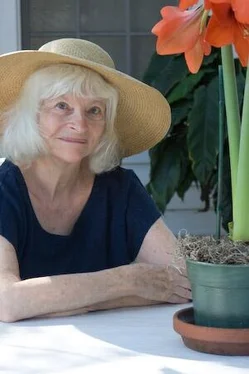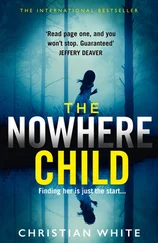“Oh, I don’t know,” she answered, surprised. But as a matter of fact there was a question she wanted to ask. “Tell me something, though. What happened to the dogs in that experiment?”
“What happened to what dogs?”
“In that experiment, the one Dr. Smith was talking about that got the dogs so mixed up. What happened to them afterwards?”
“Don’t know.” Iz shrugged. “The same as happens to most experimental animals, I would guess.”
“And what’s that?”
“Send them over to the nearest med school labs.” He observed Katherine’s expression. “You see, once animals have been through one psychological experiment, you can’t use them in another, because they wouldn’t be normal subjects any longer.”
Katherine set her mouth. “I think that’s terrible,” she said. “Those poor dogs. First you put them through all that misery and confusion, for months and months, and then you send them off to be tortured by medical students. I’m not an anti-vivisectionist or anything,” she added. “I realize they have to use animals for research, I mean to test new medicines and so forth. But what does that experiment prove? Just that if all the order of life is taken away it’s depressing and terrible. Everybody already knows that.”
Iz looked at Katherine intently throughout this speech. When she finished he cleared his throat, as if he were about to speak, but apparently thought better of it.
“The professor that did that experiment, he must be a sadist or something,” she added, looking at him for confirmation.
“I don’t know him. Maybe he is, who knows? They have that motive, occasionally, these guys who go into experimental psych. But most likely, it was pure scientific curiosity. He really wanted to see what would happen. Or he had an idea what would happen, and he wanted to prove it.”
A waitress appeared in the courtyard, shivering in a teased hairdo and a pink uniform. “Did you want something?” she asked in an affected, unfriendly voice. “We aren’t serving out here yet.”
Katherine started to get up, but Iz motioned her back. “Please,” he said. “I’d like some ice cream. Tell me,” he went on, looking at her persuasively. “This flavor-of-the-month you have this month, this Ginger Fluff. Is it any good?”
The waitress looked down. “Well,” she said distantly. “You might like it. I don’t care for it myself.”
“Ah. Why not?” Iz gave her a direct, solemn glance, appropriate to the most weighty question or respondent—as if he were professionally engaged. Katherine had never been inside a psychiatrist’s office, and never intended to be, but she recognized it, perhaps from movies.
“Well, I d’know. I guess I don’t like ginger much. And then the Fluff part, that’s marshmallows.”
“And you don’t like marshmallows,” Iz interjected.
The girl giggled. “Nah, I don’t mind marshmallows.” Her voice had completely changed; it was now cheerful, nasal, unrefined.
“You don’t mind marshmallows, but you don’t like them with ginger.”
“That’s right.” Now she gave him an open, confident smile, like a patient pleased and surprised by a diagnosis. “Yeah, that’s what it is.”
“Well,” Iz said. “I don’t mind ginger but I don’t like it with marshmallows. So I’ll have orange sherbet. Two dishes of orange sherbet?”
“I’m not hungry,” Katherine insisted.
“One dish of orange sherbet.”
Though the waitress had gone, Katherine said nothing. She glanced round at the empty tables and chairs, the stained cement, the lush plants in their containers. Looking more closely at the pot nearest them, she realized that the foliage was half real, half artificial: the living shrubs and vines, winter-faded, had been eked out with shiny plastic ones.
“This matter of the lack of cues,” Iz said. “It doesn’t have to create a panic. Look at it this way. Man is not a dog: he is a rational animal. If there is no schedule, then you are free to work out your own schedule. A place like this, Los Angeles, actually it’s a great opportunity. Consider me, for instance. When I first got here I was still beating out my brain trying to be at work every day at nine A.M. I don’t do that any more. I get up when I feel like it, at twelve or one, I don’t see any patients before two, so I’m still fresh for evening hours. So, I get home about eleven and have supper and I’m still completely awake at midnight. And between then and four A.M. is the best time in Los Angeles, Katherine. The city’s beautiful then: no heat, no smog, no crowds. Almost quiet.”
“I’d like to see that,” she said, a little sceptically.
“You should.” Iz pulled at his beard. “There’s only one thing wrong with my schedule: Glory wouldn’t play. She never wanted to stay up with me, because she always had to be at the goddamned studio at eight A.M. the next day.” He frowned above his heavy horn-rimmed glasses. “Sometimes I think that’s what really broke us up. Ah, good,” he added, as a tall dish of orange ice was placed in front of him.
“Can I get you anything else?” the waitress asked. “We just made some new coffee.”
“No thanks. This is fine.”
Katherine watched the girl hover a moment, and depart. “She wanted to talk to you some more,” she remarked. She wasn’t trying to change the subject—she was interested and flattered that Dr. Einsam should confide in her. For the first time she felt sorry for him: he was an employer and a psychiatrist, with a high-bracket income, yet something he wanted had been taken away from him. At the same time, why had he wanted to marry a person like that, a movie starlet? She simply could not think what comment to make.
Iz shrugged. “I’m talking to you now.” He attacked the mound of sherbet. “For an example, last night,” he went on. “It wasn’t so late, only about one-thirty. I was up in Malibu at the Positano—we used to go there often. There was a new singer I wanted Glory to hear. I really thought she would be interested. So I got on the phone and called her. She wouldn’t come up. All she could talk about was how I had woken her up and how tired she was. She didn’t even listen to me.” He chopped at the cone of ice-cream with the side of his spoon. “Well, that’s the problem. Well, it’s one of the problems, at least. So what would you do in that situation?”
“Me?” Katherine jumped nervously. “I don’t know,” she said through her headache. How simple Dr. Einsam’s problems were, compared to hers, was what she thought. Imagine breaking up a marriage over something so trivial. It reminded her of those news items in the Los Angeles paper in which someone was suing for divorce because their husband snored, or their wife ate crackers in bed. “I don’t know; maybe your wife could take a nap in the evening, before you get home. You have to compromise. After all, you can’t really expect her to stay up until four A.M., when she has to go to work the next morning.”
“You think I should adjust my schedule to her needs,” Iz said, frowning aggressively.
Though Katherine realized that Dr. Einsam’s bitterness was directed through her rather than at her, she quailed before it. “Really,” she said. “I don’t know anything about it.” She pulled her coat closer, somewhat ineffectually, and rested her forehead on the back of one hand.
Iz looked at her. “You have a headache,” he recalled. “How is your headache?”
“It’s rather bad.”
“I’m sorry. Where does it hurt exactly?” he added, with a note, though a rather forced one, of professional sympathy.
“It hurts everywhere today. Here and here and here and here. All around my eyes. The worst pain is right here under my eyebrows—it’s as if my forehead was being hammered in a vise.” Katherine laughed a little, uncomfortably. “In my lower sinuses, under the eyes, it’s mostly only a tingling, burning sort of feeling.”
Читать дальше












